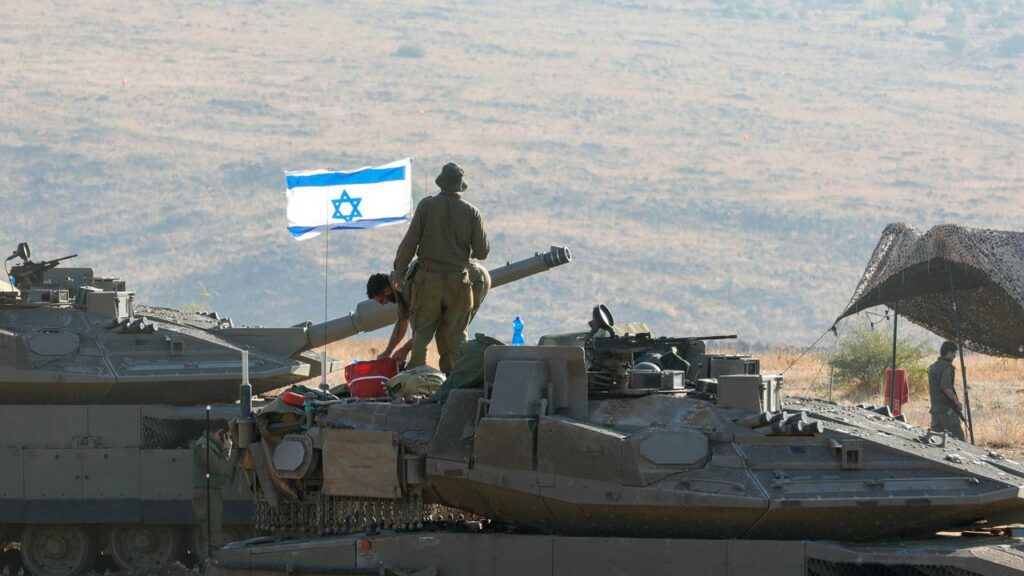About 30 rockets were fired into northern Israel from Lebanon late Thursday into early Friday, following an Israeli drone strike that seriously wounded a commander of Iran-backed militant group Hezbollah in southern Lebanon, the Israeli army said.
“We can confirm that around 30 rockets were fired from Lebanon toward the areas of Ein Zeitim and Dalton in the north of Israel,” an army spokesperson told AFP, adding that initial reports suggested “no one was wounded” by the strikes.
Earlier Thursday evening, an Israeli drone strike on a car in south Lebanon seriously wounded a commander of Iran-backed militant group Hezbollah on Thursday, sources on both sides of the border said.
The commander was “seriously wounded and a companion was also injured” in the strike, a Lebanese security source told AFP on condition of anonymity.
The Israeli military said its aircraft struck a “Hezbollah commander” in south Lebanon, claiming he was involved in cross-border rocket attacks.
It claimed the target was “involved in a number of launches toward Kiryat Shmona and Metula” in northern Israel.
But a military spokesman was unable to say whether those included rocket and missile launches earlier on Thursday.
The strike took place on one of the main roads into the city of Nabatiyeh, some way from the border region that has seen almost daily exchanges of fire since the Israel-Hamas war broke out last October.
Lebanon’s state-run National News Agency reported that the vehicle had caught fire after it was hit by a missile fired by an Israeli drone as it entered the city at around 4:15 pm (1415 GMT).
The Lebanese army closed off the main road where the strike took place, an AFP photographer reported.
Earlier, Hezbollah said it had targeted a brigade headquarters in the Israeli border town of Kiryat Shmona in the latest exchanges between the two sides.
It said its fighters “targeted the Meron air control base with a Falaq missile” in response to Israeli attacks “on villages and civilians.”
The Israeli military said it “successfully intercepted a suspicious aerial target that crossed from Lebanon into northern Israel.”
It said it had carried out air strikes on Hezbollah targets, “including weapons inside a truck, a terrorist infrastructure and a military compound in the areas of Khiam and Kfar Hamam.”
Israeli air force chief Tomer Bar warned that if war breaks out on the Lebanese border, “there will be massive and significant blows, hundreds of targets will be attacked simultaneously deep in the country — as well as Tyre, Sidon, Beirut and the Bekaa (Valley).”
Since the day after Hamas militants attacked Israel on October 7, sparking the Gaza war, Hezbollah has targeted Israeli army positions along the border in support of the Palestinian Islamist movement.
Israel has repeatedly bombarded Lebanese border villages, killing 227 people, mostly Hezbollah fighters but also 27 civilians, according to an AFP tally.
On the Israeli side, 15 people have been killed in the northern border area, including nine soldiers and six civilians, according to the Israeli army.
The exchanges have sparked fears of a repetition of the devastating 2006 war between Israel and Hezbollah that Western governments have been scrambling to avoid.
French Foreign Minister Stephane Sejourne visited Beirut this week, hot on the heels of his British counterpart David Cameron.



